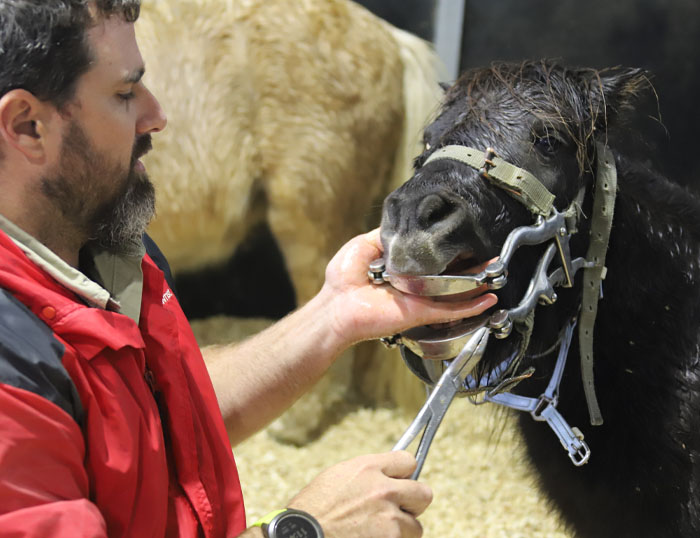When it comes to the overall health of a horse, one often overlooked aspect is dental health. A horse dental infection can cause significant discomfort and lead to more severe health issues if not addressed promptly. Understanding the causes, symptoms, and preventive measures is crucial for all equestrian enthusiasts who want to ensure their horses lead healthy lives.

Why is Dental Health Important for Horses?
Dental health is vital for horses as it directly affects their ability to eat, which in turn impacts their overall health and performance. Horses rely heavily on their teeth to grind down fibrous plant materials efficiently. Without proper dental care, horses might experience weight loss, behavioral changes, and even digestive issues.
Causes of Horse Dental Infection
Several factors can lead to a horse dental infection. These include poor oral hygiene, dietary issues, and genetic predispositions. Dental problems can also arise from improper alignment of teeth or the wear and tear that naturally occurs as a horse ages. Understanding these causes is the first step in prevention.
Poor Oral Hygiene
Just like humans, horses require regular dental care to maintain basic dental care. Without routine cleaning and check-ups, plaque and tartar can build up, leading to infections.
Dietary Issues
Horses that consume a diet lacking in roughage or with an excess of sugary feeds are more prone to dental issues. A balanced diet plays a crucial role in maintaining oral health.
Genetic Predispositions
Certain breeds are more susceptible to dental problems due to genetic factors. Being aware of these predispositions can help in early detection and management.
Recognizing Symptoms of Dental Infection
Identifying the symptoms of a horse dental infection early can prevent more severe health issues. Common signs include difficulty eating, bad breath, swelling around the jaw, and changes in behavior such as increased irritability.
Difficulty Eating and Weight Loss
If a horse struggles to chew or swallow, it could indicate a dental problem. This difficulty often leads to weight loss and malnutrition.
Bad Breath
Foul odor from a horse’s mouth is a clear sign of potential infection. This symptom should prompt an immediate dental examination.
Swelling and Behavioral Changes
Swelling around the jaw or unusual behavior such as head tossing and reluctance to accept a bit can signal dental issues.
Preventive Measures for Horse Dental Health
Preventing a horse dental infection involves regular dental check-ups and proper dietary management. Implementing these preventive steps can ensure your horse remains healthy and comfortable.
Regular Dental Check-Ups
Scheduling routine dental examinations with a qualified equine dentist is crucial. These check-ups help in early detection and treatment of potential issues. For a comprehensive examination guide, refer to our dental exam guide.
Balanced Diet
Providing a balanced diet rich in roughage helps maintain dental health. Avoiding sugary feeds can also prevent plaque build-up.
Proper Equipment Use
Using suitable equipment, like well-fitted bits, can prevent dental wear and discomfort. For more tips on maintaining dental equipment, visit our post-surgery dental care page.
When to Seek Professional Help
If you notice any symptoms of dental issues, it’s essential to consult with a veterinarian or an equine dental specialist promptly. Early intervention can prevent more severe complications and ensure your horse’s health and well-being.
The Importance of Education and Awareness
Educating yourself on the importance of dental health and being aware of the signs and symptoms of dental issues can greatly benefit your horse. Engaging with equine communities and resources can provide valuable insights. For age-related dental changes, see our dental aging guide.
Conclusion
Maintaining your horse’s dental health is an ongoing process that requires attention to detail and a proactive approach. By understanding the causes and symptoms of horse dental infection, and implementing preventive measures, you can ensure your horse remains in excellent health. For more information on equine dentistry, consider visiting KER’s equine dentistry resource.

FAQ Section
What are common signs of dental problems in horses?
Common signs include difficulty eating, bad breath, and swelling around the jaw.
How often should a horse receive a dental check-up?
It’s recommended that horses have a dental check-up at least once a year.
Can diet affect a horse’s dental health?
Yes, a diet lacking in roughage or high in sugars can negatively impact dental health.
This article contains affiliate links. We may earn a commission at no extra cost to you.
